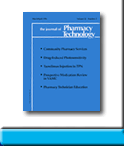 |
 |
Ipilimumab-Induced Pneumonitis: A Case Report
Lydia Mis, Jeffrey M Clarke
To request full article click here.
Objective: To report a case of ipilimumab-induced pneumonitis in a patient with metastatic melanoma.
Case Summary: A 74-year-old woman with metastatic melanoma presented to the emergency department with progressive shortness of breath and dyspnea of 1 week’s duration following her third cycle of ipilimu mab. Upon presentation, she was hypoxic, with oxygen saturation of 66% on room air. After stabilization, she was transferred to the inpatient unit where she was placed on broad-spectrum antibiotics (intravenous vanco mycin, piperacillin/tazobactam, oral ciprofloxacin, and oral trimethoprim/sulfametho xazole) and a high-dose corticosteroid (intravenous methylprednisolone 30 mg every 6 hours). Bronchoscopy was negative for infection, and results of blood, urine, and respiratory cultures were negative. Antibiotics were eventually stopped and the patient responded to a high-dose corticosteroid for probable ipilimumab-induced pneumonitis.
Discussion: Ipilimumab is a recombinant, human monoclonal antibody that was approved for the treatment of metastatic melanoma. A black-box warning exists for immune-mediated adverse reactions, which can involve any organ system and are a result of T-cell activation and proliferation. The most common sites for these reactions are the gastrointestinal tract, skin, liver, and pituitary gland. The Naranjo probability scale indicated a probable relationship between the development of pneumonitis and ipilimumab therapy. Review of the litera ture through October 2012 did not yield any reports of single-agent, ipilimumab-associated pneu moni tis in patients with metastatic melanoma. Infection was ruled out, and no other etiology was identified for the patient’s acute symptoms. Furthermore, she responded quickly to a high-dose corticosteroid.
CONCLUSIONS: Ipilimumab is associated with immune-mediated toxicities that can be severe or fatal. Prompt recognition and treatment of these reactions is necessary to prevent morbidity or mortality. This is the first reported case of single-agent, ipilimumab-associated pneumonitis in a patient with metastatic melanoma.
J Pharm Technol 2013;29:94-8
To request full article click here.
|
|
|
||
|

